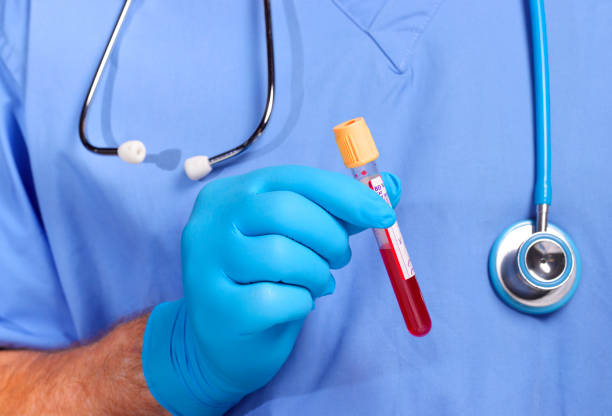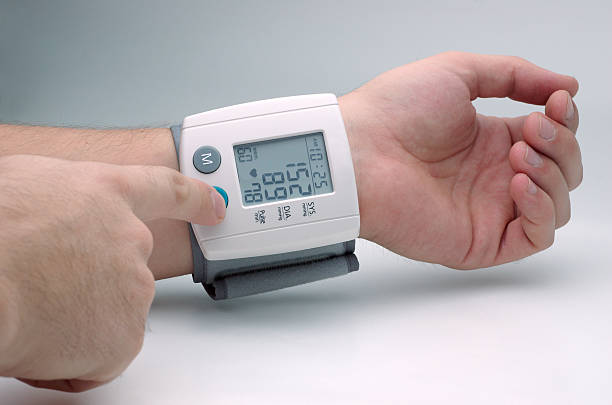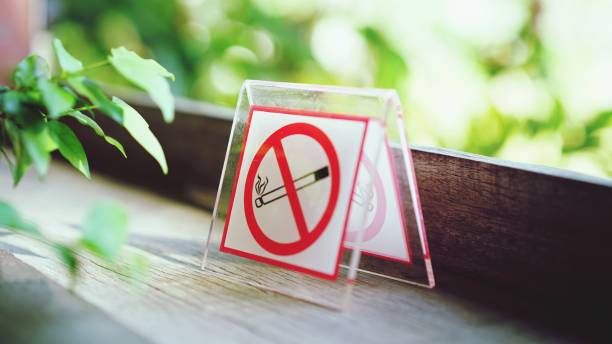It’s that time of year again where you are off to the doctor’s for your annual physical exam. You know it is necessary, but do you know what tests should be done in this exam? It is more than just checking that you are in good health. It includes a number of tests that are essential to ensure that your body is, in fact, in good health.
What can I expect from my annual physical exam?

The whole purpose of this annual exam is to find out the general status of your health. It is also an opportunity to speak to your doctor about any concerns you have. Not sleeping ell at night? Now is the time to speak up.
The physical exam happens once a year. It is recommended that every adult has this exam, but especially those who are 50 years and older.
When you visit your doctor for your annual physical exam, it is where you’ll be checked for any possible diseases so they can be treated accordingly. It is also necessary to identify any possible issues that could become a concern in the future.
First things first – your clinical history will be updated. This includes dates and results of tests you’ve had prior to visiting the doc for this exam. Your family’s medical history is likely to be discussed as well. So, if Uncle Joe suffered from heart disease, now is the time to bring it to your doctor’s attention.

Your own medical history will also be discussed. This could include a review of any past surgeries along with the medications you are currently taking, and why.
Your doctor will ask you about your habits, so whether you smoke and/or drink and how much. This is part of the lifestyle questions you can expect, including how active you are and what your eating habits are like.
Lastly, you’ll be asked about your bodily functions. This’ll touch on Whether you can see and hear well, your sleeping habits, bowel function and urination. (A little embarrassing perhaps, but necessary so the doctor can identify any potential issues.)
What tests are conducted during this exam?

Bear in mind that the number and type of tests your doctor will conduct are dependent on your age, overall health, whether you are male or female along with the medical history obtained from your records.
The annual check-up will also include a physical exam. Women can expect a pelvic scan and a clinical breast exam. A prostrate exam is typical for men.
A number of screening tests are also done during the annual physical exam. This means that you’ll have blood taken which is then sent to a laboratory for screening. It is also called a basic blood panel. This tests your blood plasma which in turn can indicate any problems that may exist in your liver, kidneys, blood chemistry and immune system.
Additionally, you’ll likely have a cholesterol test, especially if your blood pressure is not what it should be. You will also have your blood pressure taken.
Let’s break it down:

- Blood pressure – your doctor will check your pulse, and listen to your heart. He’ll also use a blood pressure cuff, called a sphygmomanometer, to check that your blood pressure is within the normal range. It’s recorded in 2 measurements, systolic and diastolic pressure, with the former recorded or listed first. A blood pressure reading that is within the normal range should be below 120/80.
- Cholesterol – also known as the lipid panel. This test is done using the blood drawn to check your ‘good’ cholesterol, your ‘bad’ cholesterol and your triglyceride levels.
- Blood sugar – this is the level of the glucose in your blood. Too much or too little may indicate diabetes.
- Basic metabolic panel – the BMP or also known as the blood chemistry 8 test, checks the levels of the various chemicals that are found in the plasma portion of your blood. It gives information about your muscles, organs and bones such as whether the levels for calcium, electrolytes and glucose are within the accepted range.
- Blood clotting test – also called a coagulation panel. This is to check to find out if your blood has the proteins needed to help it clot.
- Urinalysis (UA) – this tests your urine. It can indicate any potential problems in your kidneys, liver and helps in the check for diabetes.
- Hepatitis C – the CDC recommends that all adults over the age of 18 get screened for Hepatitis C. This is a disease of the liver, caused by the Hepatitis virus. It also tested through a blood test.

Are all these tests really necessary?
With so many tests that are likely to be done during the annual physical exam, you may be wondering if they are all really necessary. The number of tests that are likely to be done during your exam will depend on you. Your overall health and whether you have been diagnosed with a condition prior to this test will necessitate further testing.
If you have high cholesterol levels, for example, a lipid test will be done to check the levels of both the good and bad cholesterol. The same applies if you have an existing hypertension condition.
A person who is in good health and hasn’t had any symptoms is not likely to need every test that is listed.
What else is checked during the physical exam?

Visiting your doctor for your annual physical exam means that you can expect some general testing. Your weight and height is checked. Blood pressure and heart rate is also checked. The doctor will also do a physical exam – he’ll examine your head, eyes, chest and abdomen.
He’ll also have a look at your nervous system functions like your speech and walking.
Additionally, he’ll check your musculoskeletal system such as your hands and wrists, ankles and feet.
How should I prepare for the annual physical exam?

There isn’t really much that you need to do to prepare for the annual physical exam. It is a good idea though, to have some information on hand as it may be needed by your doctor to update your medical history file.
1. Make a list of any allergies you suffer from. Include the prescribed medications you are currently taking on your list.
2. If you’ve noticed any health issues, or symptoms that concern you, these should also be written down on your list.
3. You also might want to ask the doctor questions –write these don as well as you are likely to forget them while in the doctor’s room. Perhaps you can ask him what vaccinations you should have (according to your age), or is there anything in your family medical history that puts you at risk. Questions such as these will give you the tools with which to plan ahead.
4. Find out from your doctor, proper to visiting him, whether you need to fast. If you are having blood drawn for a blood screening, you may need to fast for at least 12 hours before the test to ensure accurate results.
5. So, if the doctor is planning a lipid panel to check your blood sugar and cholesterol levels, you will need to fast.

What if my tests have poor results?
The annual physical exam is an excellent preventative measure. Its aim is to ensure that your overall health is good and that you do not have any underlying conditions.
Sometimes, though, your results are not as good as you expected. Your doctor will explain the results of the blood tests that were done. He’ll also explain and recommend the best way forward to ensure that these issues are correctly controlled.
Should the tests reveal that you have hypertension, your doctor will prescribe the appropriate medication to help control your blood pressure level. He’ll also advise on how to change your lifestyle so your body benefits.

If you have hypertension, the chances that you have high cholesterol levels increase. Again, your doctor can prescribe the right medication to assist with bringing your cholesterol level to a manageable level.
Your doctor may call you back for a follow-up consultation to discuss your results and his recommended plan of action.
There is no reason to panic as the health issue has now been identified and the right solution and help can be planned. If you hadn’t gone for your annual physical exam, you might not have found out about any of the conditions, and these could have has disastrous results.
What can I do to prevent these negative results before next year’s physical exam?
You are likely to receive medication for any conditions identified, along with the instructions on how to use them. However, it is a good idea to see what changes you can make to your current lifestyle to improve your health.
This may take a little hard thinking and debate with yourself. After all, some habits feel almost impossible to break. If this is a concern to you, remind yourself that you aren’t making changes for anyone other than yourself.
The rewards are not only an affirmation, but improved health and comfort.
First have a look at your lifestyle. This includes the food you eat, how you relax, what exercise you do as well as nasty habits that need attention.
Take another bite…

Take a look at your diet. What foods do you eat every day? Are they part of a healthy diet or are they processed and rich in salt and fat? The food you eat plays a huge role in your health. It may be time to rethink your diet. Choose one that has fresh fruit and vegetables, is high in protein, but low in carbohydrates and fat.
It’s time to toss the daily crisp and candy binge.
If this sounds really difficult, pick 1 day of the week and call it your junk food day. On this particular day, you can allow yourself 1 or 2 servings of the food that is on your ‘no-go’ list. You’ll enjoy them the first 2 weeks or so, but thereafter you’ll notice that you don’t feel well after indulging.
Exercise…

Many people are just not interested in exercise. Understandable when the weather is poor, or there doesn’t seem to be enough time in a day.
A great thing about exercise – other than the physical and health benefits – is that when you do exercise, your body releases chemicals called endorphins. The endorphins interact with the chemical receptors in your brain and act to increase feelings of well-being and pleasure.
Intense level exercise like aerobics or running are excellent cardio exercise. They aren’t for everyone though. Walking as an exercise is an excellent form. It also costs nothing. If you prefer to be with people, even when exercising, consider forming your own walking group.
You could also find out about Yoga and Tai Chi groups in your area.
Break those nasty habits…

If you smoke, you are probably rolling your eyes as you already know the reasons why you should quit. But, it is worth repeating. Smoking is 1 of the largest causes of unpreventable death in the USA. It causes heart disease, lung disease and also has been associated with other types of cancers.
When you make the decision to stop smoking, the following happens:
- In a matter of hours, your heart rate returns to normal and all the nasty chemicals start leaving your body.
- Within days, your breathing is so much easier and both your sense of taste and smell improve.
- In a few short weeks, your cholesterol levels are lower and your chances of stroke and heart attack start to fall.
- In months, your blood flow will improve and you’ll feel more energetic
All super good reasons to quit.
When you have more than 1 per day, or you indulge heavily in hard liquor and spirits that it can cause a problem. Moderate your alcohol intake and improve your health.

Your annual health exam is necessary to ensure that you remain in optimal health. Like servicing your vehicle, don’t postpone or ignore it.

